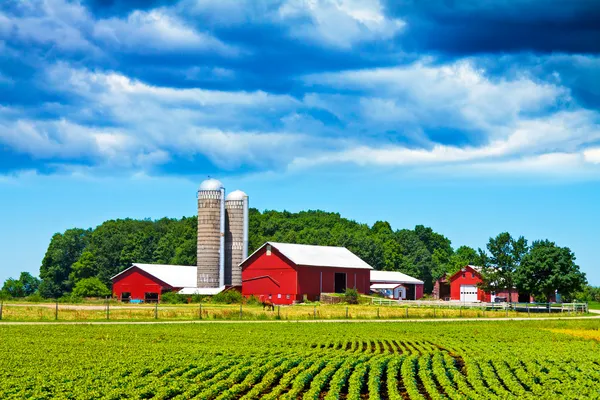Genetic engineering is the intersection of technology and nature in an attempt to create the best possible outcome. The process of genetic engineering alters the structure of genes through direct manipulation of an organisms genetic material. DNA is either added or removed, this process produces traits, that weren't found in the organism before the engineering. Genetic material has revolutionized agriculture in a way that cannot take place naturally or with selective breeding.
Gene editing also allows for herbicide resistant plants. It also produces plants with a resistance to infestations or droughts. The main benefit of GMO crops is how it impacts people, allowing more people to enjoy meals, without having to worry about certain environmental factors, due to increased crop yields, from hardier crops. The pros of genetic engineering in agriculture heavily relies on this. However, a small population are looking into the dangerous propositions of this technology.
The technology is riddled with arguments and questions, so let's outline some of the pros and cons of genetically modified crops.
Pros
1. More Nutrition Benefits:
Genetically modified plants can have extra vitamins and minerals added to them in the process of modification. Therefore, it provides greater health benefits. A great example of this is the work being carried out by the Golden Rice Project. They have taken rice and added additional vitamin A, giving it a golden color. This has a great impact on the developing countries the project is aimed at helping, as their main source of nutrition is rice, overall this reduces the vitamin A deficiencies in these areas, saving thousands of lives.
2. Improved Taste:
GMO crops may have enhanced flavors. For example, chili's can be made spicier, or apples sweeter. In general the flavors are made more palatable with genetic engineering.
3. Improved Seeds:
Altering of DNA can lead to healthier crops, with increased resistance to insects and lowering risk of crop failure due to seeds that are more weather resistant higher crop yields for farmers can be guaranteed, and in turn less of a shortage of fresh foods due to environmental factors.
4. More Disease Resistant:
GMOs are more resistant to diseases. Gene editing technology can essentially work as a plant vaccine encoding immunity into the plants genetic code.
5. Environmental Benefits:
GMO crops are much hardier than regular crops, in turn they require less chemicals, land and water which helps reduce environmental pollution. It also allows for increased productivity of farmers, as less nurturing of crops is needed.
Cons
1. Pathogens Adapt to new Genetic Profiles:
Genetic engineering can create resistance to pathogens for plants and animals. However bacteria and viruses also have the ability to mutate, this can lead to stronger, more resistant pathogens.
2. Unexpected Negative Side Effects:
Genetic engineering guarantees positive changes to plants. Despite this, there can be unforeseen negatives, such as, drought resistant crops becoming less tolerant of direct sunlight.
3. Copyrighted Technology:
Many companies copyright the genetic engineering processes to maintain profitability. The copyrighting and trademarking of technologies often brings high price tags, as well as ethical implications within the world of agriculture, due to the possibility of cross pollination between crops.

Quality content is the key to attract viewers/readers. And you provide just that. Good work. You can also check about organisms from primeval times from elstel.org
ReplyDeleteThe Casino Directory | JtmHub
ReplyDeleteThe 출장마사지 Casino Directory is a complete 출장안마 directory for casino and sportsbook operators in Ireland and poormansguidetocasinogambling Portugal. Jtm's comprehensive directory gri-go.com provides you with more than 바카라사이트 150